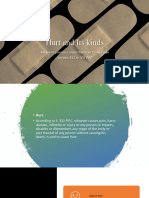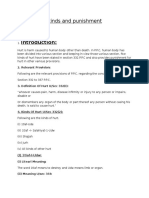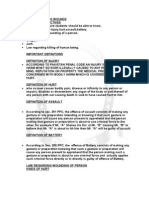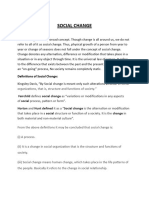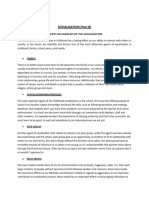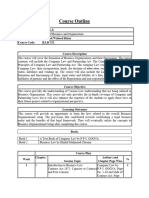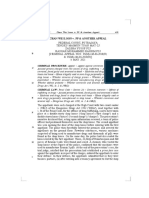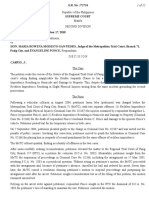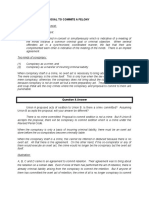0% found this document useful (0 votes)
101 views10 pagesPPC 2
The document defines and explains punishment for various crimes against property and persons under Pakistani law, including:
1. Theft, punishable by up to 3 years imprisonment and/or fine.
2. Extortion, also punishable by up to 3 years imprisonment and/or fine.
3. Robbery, punishable more severely from 3-14 years imprisonment and fine.
4. Dacoity (robbery by 5 or more persons), also punishable by imprisonment.
5. Various types of hurt against persons, ranging from dismemberment to lesser injuries, punishable by imprisonment, fines, and physical retaliation (qisas) in some cases.
Uploaded by
Saqlain HyderCopyright
© © All Rights Reserved
We take content rights seriously. If you suspect this is your content, claim it here.
Available Formats
Download as DOCX, PDF, TXT or read online on Scribd
0% found this document useful (0 votes)
101 views10 pagesPPC 2
The document defines and explains punishment for various crimes against property and persons under Pakistani law, including:
1. Theft, punishable by up to 3 years imprisonment and/or fine.
2. Extortion, also punishable by up to 3 years imprisonment and/or fine.
3. Robbery, punishable more severely from 3-14 years imprisonment and fine.
4. Dacoity (robbery by 5 or more persons), also punishable by imprisonment.
5. Various types of hurt against persons, ranging from dismemberment to lesser injuries, punishable by imprisonment, fines, and physical retaliation (qisas) in some cases.
Uploaded by
Saqlain HyderCopyright
© © All Rights Reserved
We take content rights seriously. If you suspect this is your content, claim it here.
Available Formats
Download as DOCX, PDF, TXT or read online on Scribd
/ 10
